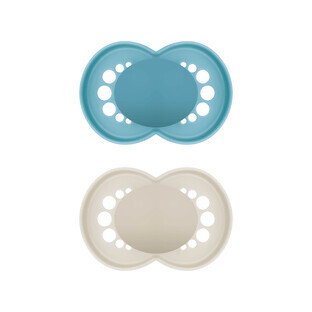

Beschrijving
Erythritol (Eryhtritol) is een 100% suikervervanger - het wordt gebruikt als natuurlijke zoetstof , die overigens van nature voorkomt in veel soorten fruit (peren, meloenen, druiven) en in hogere concentraties in voedingsmiddelen, bijvoorbeeld in sojasaus, kaas, wijn of bier. In voedingsmiddelen wordt het gebruikt om de smaak te verbeteren, te bevochtigen, als zoetstofvervanger, stabilisator of verdikkingsmiddel. Het lijkt erg op suiker, het is ongeveer 60-80% zoeter dan sucrose, maar bevat geen calorieën. Het heeft een aantal positieve eigenschappen: lage glycemische index, laag caloriegehalte, laag effect van overeten. Het verhoogt de bloedsuikerspiegel niet en heeft geen invloed op de insulinespiegels.
Erythritol wordt geproduceerd door plantensuiker te fermenteren - de suiker wordt gemengd met water en vervolgens op natuurlijke wijze gefermenteerd tot erythritol. Vervolgens wordt het gefiltreerd, kristalliseert en vervolgens gedroogd. Het eindproduct ziet eruit als suiker, heeft hetzelfde gewicht en volume, maar heeft slechts 65-70% van de zoetheid van suiker . 90% van erythritol wordt direct in de dunne darm geabsorbeerd en binnen 24 uur uitgescheiden. Erythritol wordt niet gemetaboliseerd door orale bacteriën, wat betekent dat het niet bijdraagt aan tandbederf .
Erythritol werd in 1990 in Japan goedgekeurd voor gebruik als suikervervanger. In de Verenigde Staten werd het in 1997 geclassificeerd als algemeen beschouwd als veilig (GRAS). In Australië en Nieuw-Zeeland werd het in 1999 goedgekeurd.
Wat maakt Erythrit-zoetstof anders?
- Het is gefermenteerd - het wordt geproduceerd door de natuurlijke suiker in maïs te fermenteren
- Het is thermisch stabiel tot 160°C
- Geen calorieën – hoewel de meeste vergelijkbare zoetstoffen weinig calorieën bevatten, is erythritol calorievrij
- Het is niet-glycemisch: het verhoogt de bloedsuikerspiegel niet. Daarom is erythritol geschikt voor mensen met diabetes.
- Het is de lichtst verteerbare suikeralcohol: meer dan 90% van erythritol wordt in de dunne darm opgenomen, waardoor slechts een minimale hoeveelheid de dikke darm bereikt. Het tegenovergestelde geldt voor andere suikeralcoholen, en daarom ervaren hun gebruikers vaak diarree en andere soortgelijke symptomen.
- Het is niet kankerverwekkend – onderzoeken hebben aangetoond dat het geen kankerverwekkende eigenschappen heeft.
- Het is een antioxidant - erythritol helpt in de strijd tegen vrije radicalen, die verantwoordelijk zijn voor het verouderingsproces. Het is zelfs effectiever dan andere suikeralcoholen omdat het gemakkelijk wordt opgenomen en niet wordt gemetaboliseerd.
Erythritol en de voordelen ervan
- bevat geen calorieën
- heeft geen invloed op de bloedsuikerspiegel
- heeft geen invloed op de insulinespiegels
- heeft een glycemische index van nul
- het is thermisch stabiel
- het is vriendelijk voor de tanden, veroorzaakt geen gaatjes
- het is gluten- en lactosevrij
- het heeft een zoete smaak
Dosering: Gebruiken als alternatief voor suiker, in dezelfde dosering als suiker. In een verhouding van 1:1.
Tabel met voedingswaarden
| Voedingswaarden | per 100 gram |
|---|---|
| Energiewaarde | 0 kJ / 0 kcal |
| De eiwitten | 0 gram |
| vetten | 0 gram |
| waarvan verzadigde vetzuren | 0 gram |
| Koolhydraten | 100 gr |
| waarvan suikers | 0 gram |
| waarvan suikeralcoholen | 100 gr |
| Natrium | 0 gram |
Let op: Het product is geen vervanging voor een gevarieerde en evenwichtige voeding. Bewaren bij een temperatuur van maximaal 25°C. Beschermen tegen vorst en direct zonlicht. Niet geschikt voor kinderen, zwangere vrouwen en vrouwen die borstvoeding geven. Buiten bereik van kinderen houden. De fabrikant is niet verantwoordelijk voor schade veroorzaakt door oneigenlijk gebruik of opslag. De aanbevolen dagelijkse dosis niet overschrijden.
Allergenenwaarschuwing: Kan sporen bevatten van melk, soja, eieren en noten.
Verpakking: 1000 gram.
Probeer ook andere producten van het merk GymBeam, die u kunt vinden in de categorieën Voeding, Zoetstoffen en Voeding, dranken. Je kunt het product nu met 1% korting kopen. Als u niet zeker weet of u dit product kiest, laat u dan inspireren in de categorie Caloriearme zoetstoffen.
Eigenschappen
| Productcode | 391302 |
| Merk | GymBeam |
| Levering vanaf | Slowakije |
Productbeoordelingen
Alle beoordelingen

Er zijn geen beoordelingen voor dit product.










































































 Beschrijving
Beschrijving 






